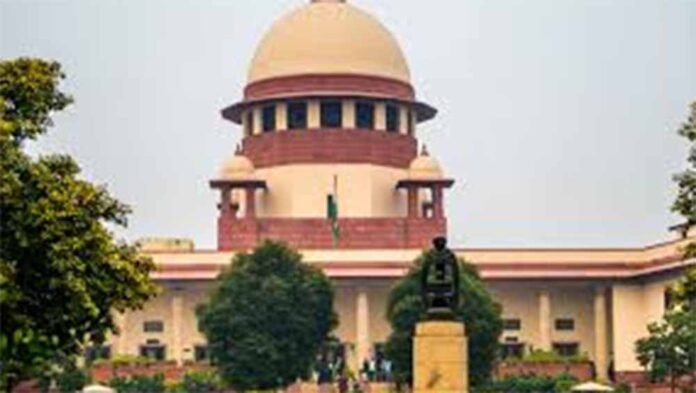The Supreme Court on Monday deplored the practice where parties voluntarily offer to deposit substantial amounts of money for bail but later seek relaxation of “onerous” conditions imposed higher courts.
A bench of Justices K V Viswanathan and N Kotiswar Singh said while the apex court was conscious of the rights of an individual under Article 21 of the Constitution, it had to be equally conscious of the “sanctity of the judicial process”.
“There cannot be any dispute that excessive bail is no bail and onerous conditions ought not to be imposed while bail is granted,” the bench said.
The top court, however, noted a onerous condition would depend on the facts and circumstances of individual cases.
The observations came when the bench was dealing with a plea stemming from a Madras High Court order.
The bench noted the petitioner was booked for offences under the provisions of the Central Goods and Services Tax Act, 2017 as he allegedly evaded Rs 13.73 crore worth of taxes.
The petitioner was arrested on March 27 and he moved the high court for bail.
It came on record that when his bail plea came up for hearing in the high court on May 8, his counsel made a submission that the petitioner had already deposited Rs 2.86 crore and was willing to abide by any stringent conditions.
His counsel was stated to have voluntarily submitted before the high court that the petitioner was willing to deposit Rs 2.50 crore within 10 days from the date of his release on bail.
The high court granted him bail with a direction to deposit Rs 50 lakh to the credit of case pending before the trial court.
Another direction was given to deposit the remaining Rs 2 crore within 10 days from his release.
Upon confirmation that he had paid Rs 50 lakh, the petitioner was ordered to be released by the high court on a Rs 10 lakh bail bond.
On May 12, however, a prayer for modification was made in the high court and it was contended that condition to deposit Rs 50 lakh before the release of the petitioner was nearly impossible due to the circumstances set out in the petition.
It further noted that in the application for modification, it was contended that the petitioner be directed to deposit Rs 50 lakh after his release within the time fixed by the high court in the May 8 order.
On May 14, the high court granted liberty to the petitioner to deposit the entire Rs 2.50 crore within 10 days from the date of his release while the other conditions imposed on him remained unaltered.
The petitioner moved the apex court against the May 14 order of the high court.
The top court said the petitioner’s counsel referred to several precedents about how onerous conditions couldn’t be imposed while granting bail.
The bench said it was “troubling” that attempts were made to foreclose consideration of bail pleas on merits by voluntarily offering deposit of amounts and later arguing that the counsel had no authority to offer monetary deposit.
“We strongly deprecate this practice. If the offer for monetary deposit had not been made at the outset, the high court may have considered the case on merits and may have granted or may not have granted relief to the petitioner,” the bench said.
The bench said the situation now was that the petitioner, taking advantage of the high court order, had secured his release.
While the top court considered setting aside both the May 8 and May 14 directions of the high court, it later upheld the May 14 order for depositing the amount within 10 days from the petitioner’s release.
SC deplores parties offering to deposit bail amount, later calling it ‘onerous’
NEW DELHI, JUN 23 (PTI)

